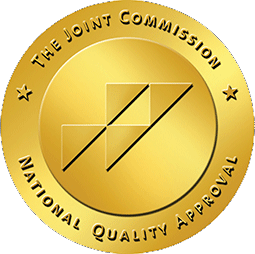What defines the region's leading pituitary tumor team? Mayfield neurosurgeons offer insights
Experience, collaboration, fellowship training, and hospital certifications from The Joint Commission make neurosurgeons from Mayfield Brain & Spine and their otolaryngology colleagues the leading providers of pituitary tumor care in the Greater Cincinnati-Northern Kentucky region.
"Mayfield neurosurgeons treat more than 200 patients with pituitary tumors each year and perform nearly 50 pituitary surgeries annually at The Jewish Hospital-Mercy Health and Good Samaritan Hospital," says Yair Gozal, MD, PhD, a Mayfield neurosurgeon and skull base specialist. "These are the only hospitals in the region to have earned The Joint Commission's Gold Seal of Approval® and Certification for brain tumor care."

"Mayfield's experience in brain tumor care is historic and extensive," says Vincent DiNapoli, MD, PhD, a Mayfield neurosurgeon and Director of The Brain Tumor Center at The Jewish Hospital-Mercy Health. "Our surgeons have performed more than 6,000 open surgeries, 3,600 radiosurgeries, and 1,150 Gamma Knife® Procedures."
Pituitary tumor surgeries represent approximately 8 percent of the total number of brain tumor cases Mayfield neurosurgeons perform each year.
Pituitary tumors, which grow from the pituitary gland at the base of the brain, are fairly common but are usually slow-growing and benign. They can be problematic, however, if they grow large enough to press on nearby structures or if they secrete high levels of hormones and thereby interfere with other organs in the body. Symptoms can include headaches, vision loss, nausea, vomiting, or fatigue.
"The pituitary gland is also known as the master gland because it regulates the release of hormones from other glands," Dr. DiNapoli says. "It controls blood pressure, urine output, body temperature, growth, metabolism, lactation, ovulation, testosterone, and stress response."
In addition to Drs. DiNapoli and Gozal, the fellowship-trained skull base specialists who perform pituitary tumor surgeries at The Jewish Hospital-Mercy Health and Good Samaritan Hospital are:
- Seth Isaacs, MD, Medical Director of Ear, Nose & Throat (ENT) at Good Samaritan Hospital
- Christopher McPherson, MD, Mayfield neurosurgeon and Site Director for Neurosurgery at Good Samaritan Hospital
- Lee Zimmer, MD, PhD, Director of ENT for The Jewish Hospital and president-elect of the North American Skull Base Society
The team's work is augmented by other specialists, including:
- Ronald Warnick, MD, Mayfield neurosurgeon and Co-Director of the Gamma Knife Center at The Jewish Hospital;
- tumor specialists at OHC (Oncology Hematology Care);
- endocrinology subspecialists at The Jewish Hospital and Good Samaritan Hospital
These pituitary specialists form a multidisciplinary team to provide all facets of care for pituitary tumors. They also offer multi-system access, with patients coming from multiple hospitals, including The Christ Hospital, University of Cincinnati Medical Center, and St. Elizabeth Healthcare in Northern Kentucky.
"Not every hospital has the surgical experience and technologies to operate on the pituitary gland, which is embedded at the base of the brain," Dr. Gozal says. "The gland is surrounded by arteries, nerves, and important brain structures. A skilled ENT surgeon and neurosurgeon work in tandem to remove pituitary tumors."
Today's elite surgical teams perform most pituitary surgeries via a transnasal transsphenoidal approach. An ENT specialist begins the procedure by inserting a long, tube-like instrument with a light and tiny camera into one of the patient's nostrils. The surgeon makes an incision at the back of the nasal cavity and continues toward the tumor through the "sphenoid sinus," an air-filled bony cavity deep in the nose to reach the pituitary gland and tumor. The tiny camera relays video to a monitor, allowing the surgical team to visualize every step of the procedure.
Once the ENT surgeon has exposed the tumor, a neurosurgeon removes it with other long, slender instruments that are inserted into the patient's other nostril. The entire procedure can take as little as 45 minutes.
"Technology has really moved ahead in this field," Dr. Gozal says. "You get such good visualization of the anatomy and the tumor that it can be successfully removed in a very safe manner."
Dr. Gozal stresses that not every patient requires surgery. "The vast majority of tumors are small. Many have not caused symptoms but have been discovered in brain scans of patients who have been experiencing headaches or who underwent imaging after a fall. These patients are naturally worried when they learn that they have a brain tumor. But if the tumor is small and asymptomatic, we are more than happy to reassure them that surgery is not necessary."

The Jewish Hospital-Mercy Health and Good Samaritan Hospital are the only hospitals in the region to have earned The Joint Commission's Gold Seal of Approval® and Certification for brain tumor care.
